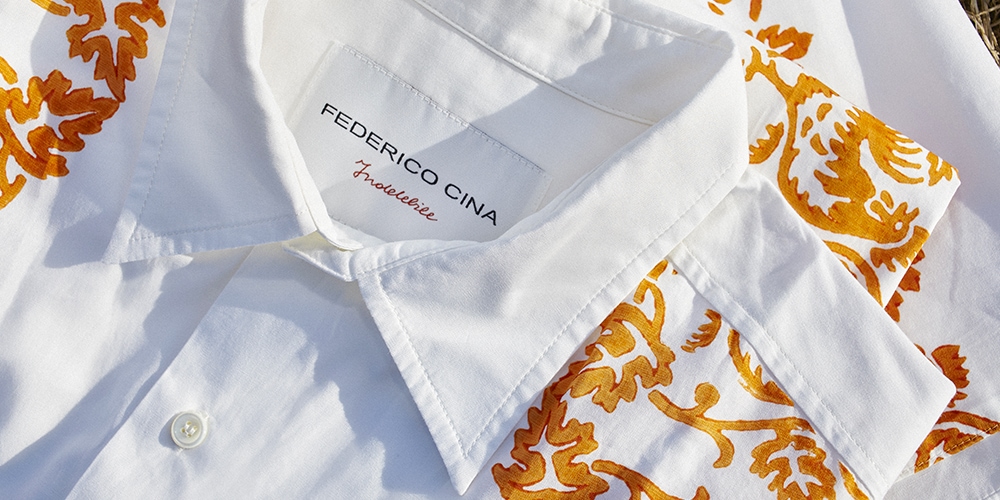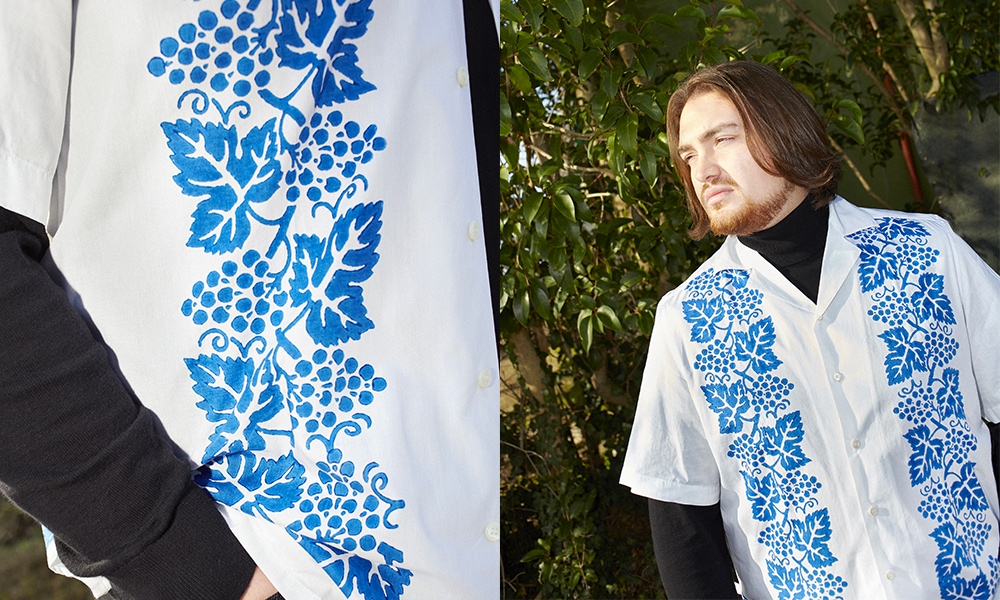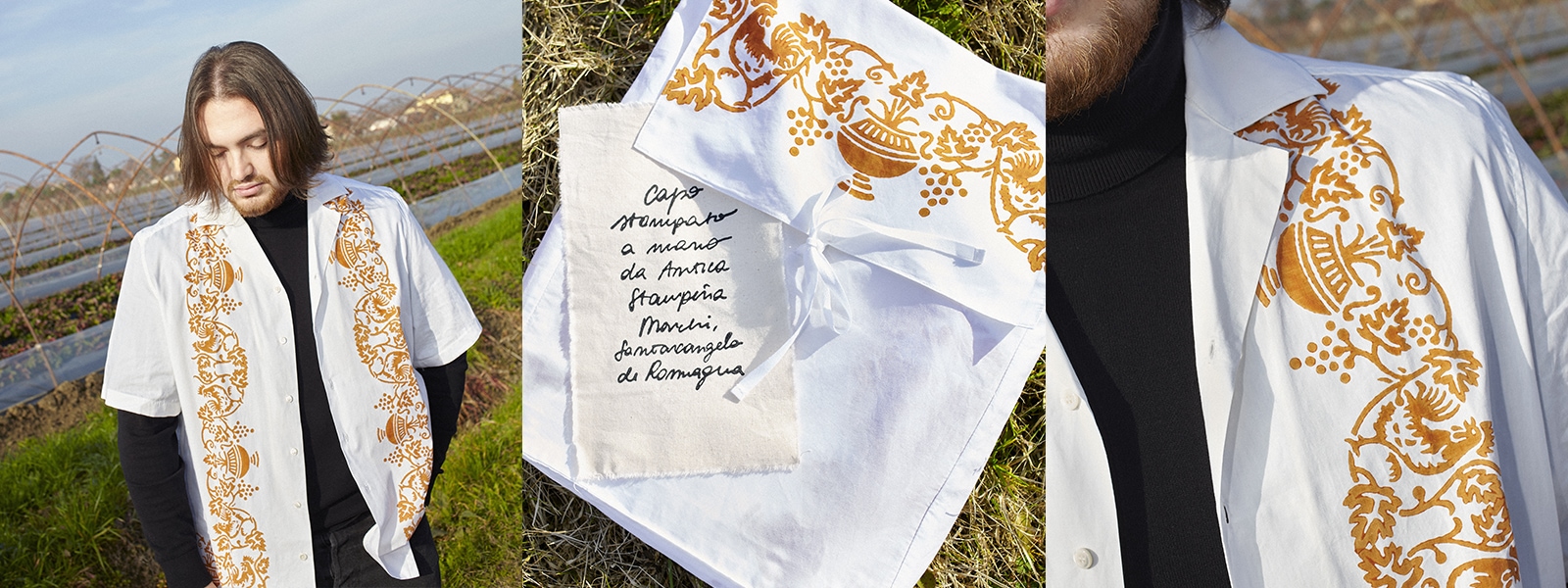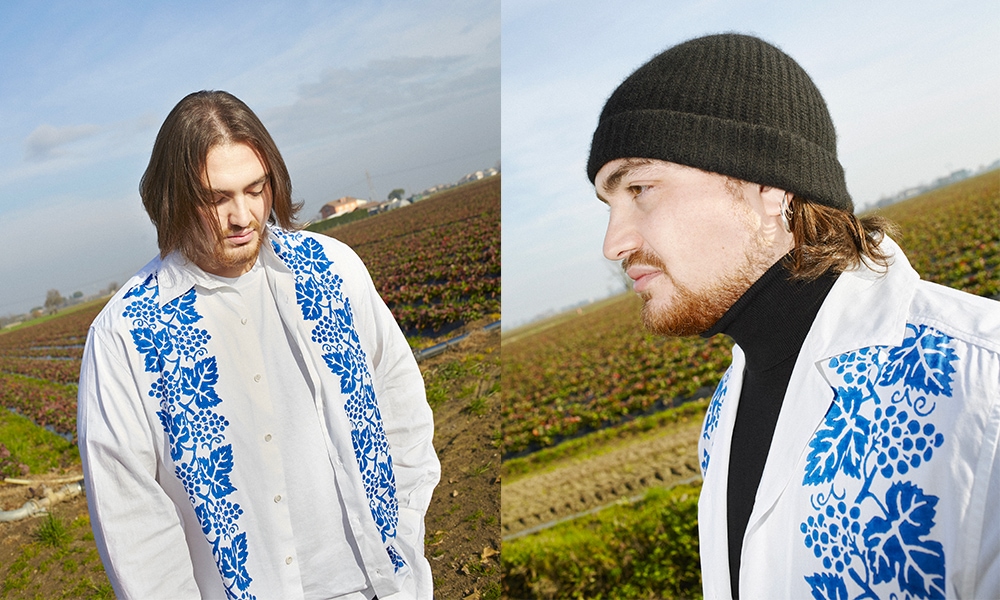
SUSTAINABLE SYMPOSIUM
FEDERICO CINA
by Giovanni Garofalo
Environmental issues concern everyone with no exception, and the fashion system is among the main causes. In fact, the textile industry is the second most polluting. Today, even if some think it’s already too late, making conscious choices is necessary. Giving back to the planet what it’s been deprived of seems an urgent and ethical matter. Federico Cina, upcoming fashion designer, has clear ideas about these issues and, through his brand, he puts eco-friendly choices together with traditions and inspirations from the past.
When was the idea of creating a sustainable brand born?
The idea was born when an aware choice of the planet’s resources met my researches. Not polluting is necessary to safeguard ourselves before anything else. My concept of sustainability is, moreover, linked with giving work to the craftsmen of my home territory, Romagna. Reducing industrial manufacturing and facilitating the artisanal one.
In your opinion, what’s the reason why not every brand puts into practice sustainable politics in the manufacturing process?
For a sustainable manufacturing process, you have to pay a much higher cost, and that makes even the final price greater. Behind many different brands, there’s entrepreneurial strategies, mostly focusing on economical profit, rather than environmental issues. Perhaps, the advantage of being an independent brand is about being able to choose your own ethics, what to stand by.
How can fashion contribute to achieving a more sustainable world?
The ways in which fashion can give its contribution are many, but I believe the most important thing is producing less, while improving the quality of the product.

For some reason, consumers are wary of recycled materials. Why don’t recycled products have the same value as new ones for the consumer?
I believe consumers now understand the added value of a recycled garment. Many brands, not just fashion ones, taught the consumer to better appreciate this value: recycled clothing is now among our choices.
Being eco-friendly can be both an ethical and strategical choice. In what ways is Federico Cina a sustainable brand?
In Romagna, like in every other part of Italy, there’s lots of craftsmen who’ve been forgotten because of the industrialisation process unfortunately. I’d like to kick-start this production chain. In my case, starting from the production of the traditional table cloths of Romagna, printed by hand with natural permanent colours and pearwood moulds from the 17th/18th century.
You talk about Romagna, an ancient Romagna. What do you think we should take from that system of beliefs that’s been forgotten by many?
For us, it’s very important to respect history and the precise technique behind a traditional, hand-printed product. This sense of respect towards history goes hand in hand with my other values, such as humanity and transparency. We often forget about those aspects, losing interest in other people and focusing on sterile narcissism.

What do you think about the brands that still exploit the animal world for their collections?
Each and every company is free to use the materials it considers as the most suitable ones for its collections, but like in every other choice good sense is needed.
Are the right opportunities to emerge offered to young designers, or is the fashion system still not meritocratic enough?
I feel a lack of support from a commercial point of view. Some entities help independent brands emerge and then leave them to find buyers or present them to showrooms asking for large sums of money (by the way, those high costs don’t guarantee any sales). Making a brand emerge is a rather important responsibility, and I think the whole process should be supported on a deeper level.
Was the choice of starting your own brand a bold or necessary move?
It was a necessity, this is my way of telling about myself and, most importantly, of feeling free, while paying homage to my family and the values they’ve taught me. Freedom is the greatest luxury. It takes lots of dedication and determination to launch and, more so, to manage a brand, but when I wake up in the morning I’m happy.
What would you suggest those who have your same ambitions?
I’d suggest listening and getting to know oneself deeply. We have to be the best friend of ourselves, in order to build something concrete and long-lasting.

Credits: Pictures by Simon